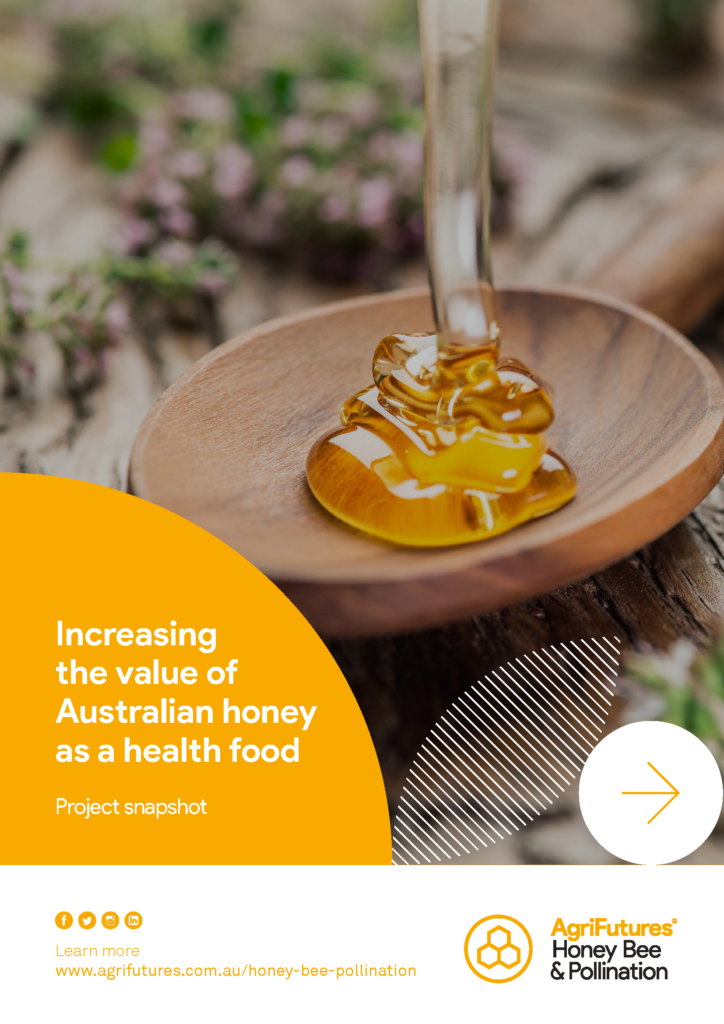National Honey Bee Breeding Strategy 2024-2029
In all livestock industries, genetic selection has been used to increase animal productivity and, by extension, enterprise profitability. The Australian honey bee industry is no...
 HONEY BEE & POLLINATION
HONEY BEE & POLLINATION 
6 pages
Published: 29 Jun 2023
Author(s): Kathleen Schell, Isabella Wilson, Liz Harry, Shona Blair, Nural Cokcetin
Download report PDF
DownloadHoney has a long history of use to treat digestive ailments and research suggests honey acts as a prebiotic food that favourably changes the balance of our gut microbiome. However, there is limited knowledge on the prebiotic potential of Australian honey and its mechanisms of action in promoting gut health. This project used laboratory models to investigate the prebiotic potential of some dominant Australian floral honeys, with the aim of enhancing their value as a food for good gut health.
The results indicate Australian honeys have prebiotic activity, regardless of the floral variety. This activity is linked with their ability to promote beneficial gut bacteria while inhibiting the growth of potentially harmful bacteria. Honey was also found to encourage the production of beneficial compounds by gut microbes. The effect of honey on gut health stems from multiple factors, including prebiotic activity combined with anti-infective, anti-inflammatory and antioxidant action, due to its many bioactive components working in synergy.
The balance of the gut microbiome is crucial for overall health, and targeted dietary interventions are gaining significant interest in the health and personalised medicine fields. Honey is an attractive option for health-conscious consumers, and with further validation could provide a means to promote gut health and restore a compromised microbiome. Furthermore, the wide-ranging floral species used to produce honey with demonstrated gut health benefits expands the potential for Australian beekeepers to increase the value of, and demand for, common table honeys that do not currently fetch premium prices.